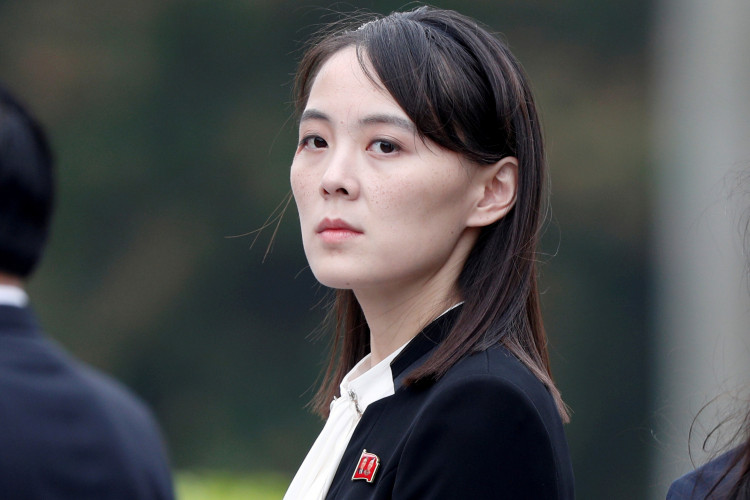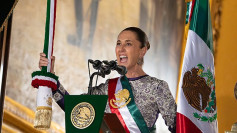North Korean leader Kim Jong Un's sister, Kim Yo Jong, on Thursday dismissed South Korean claims that Pyongyang had removed propaganda loudspeakers along the inter-Korean border, calling such beliefs a "pipedream" and accusing Seoul of misleading the public. Her comments come amid renewed tensions ahead of joint U.S.-South Korean military exercises later this month.
South Korea's Joint Chiefs of Staff said last weekend it had observed some of the North's loudspeakers being dismantled, days after Seoul removed its own as part of an effort to ease hostilities. However, Kim asserted, North Koreans "have never removed loudspeakers installed on the border area and are not willing to remove them," according to the Korean Central News Agency.
Military spokesman Lee Sung-jun said Thursday the South stood by its assessment, but urged caution in interpreting Pyongyang's statements, noting the North had often made "claims that are untrue." He declined to detail how many loudspeakers had been removed but did not refute reports that only one unit had been taken down.
President Lee Jae Myung, who took office in June, has sought to reengage Pyongyang, describing the North's purported removal of loudspeakers as a "reciprocal measure" and expressing hope for gradual dialogue. Kim Yo Jong rejected that optimism, saying, "I am confident that Seoul's policy towards the DPRK remains unchanged and can never change."
She also dismissed speculation that Pyongyang might use the planned meeting between Russian President Vladimir Putin and U.S. President Donald Trump in Alaska to relay a message to Washington. "Why should we send a message to the U.S. side," she said, adding that North Korea has "no interest in talks with the Americans."
North Korea has shifted its foreign policy toward closer alignment with Russia since the 2022 invasion of Ukraine, sending troops and military supplies to Moscow. State media in both countries reported that Kim Jong Un and Putin spoke by phone this week to discuss cooperation, but only Russia's TASS mentioned the upcoming Trump-Putin talks.
The loudspeaker dispute underscores the symbolic and strategic role of psychological operations along the border. Under former President Yoon Suk Yeol, Seoul resumed broadcasting K-pop songs and anti-Pyongyang messages in retaliation for North Korean trash-laden balloon launches. Pyongyang responded with its own broadcasts, blasting sounds such as howling animals and pounding gongs until stopping in June.






